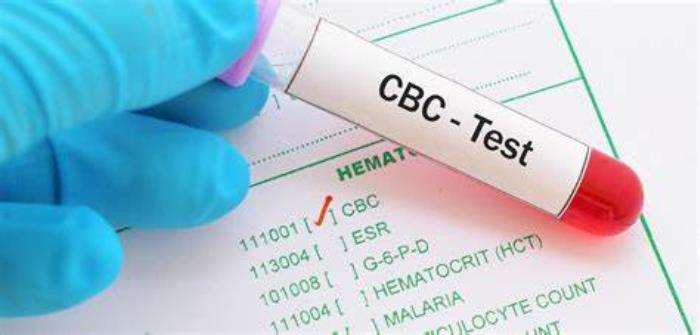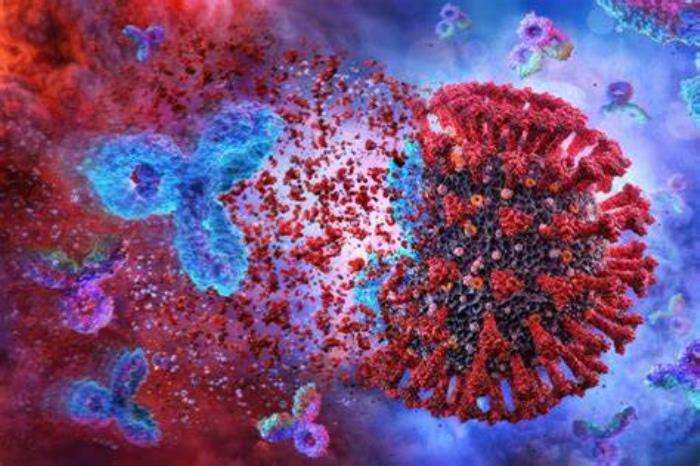Blood tests are crucial in post-lung transplant care as they provide valuable insights into the recipient's overall health and the transplanted lung's function. Regular bloodwork helps monitor for early signs of organ rejection, infections, and complications related to immunosuppressive therapy. This proactive approach ensures timely interventions to preserve the recipient's health and extend the lifespan of the transplanted lung.
Medical disclaimer: This content is for general awareness and does not replace a doctor’s consultation. For diagnosis or treatment decisions, consult a qualified specialist.
Types of Blood Tests Used in Monitoring Lung Transplant Patients
Lung transplant patients undergo various blood tests, including Complete Blood Count (CBC), kidney and liver function tests, and immune monitoring. These tests evaluate organ health, detect potential infections, and assess the effectiveness of immunosuppressive medications. Each test serves a specific purpose in maintaining the recipient’s health and preventing complications.
Role of Complete Blood Count (CBC) in Assessing Health
The Complete Blood Count (CBC) is a routine blood test that evaluates the levels of red and white blood cells, hemoglobin, and platelets. After a lung transplant, CBC results can indicate infections, anemia, or complications with bone marrow function, often caused by immunosuppressive medications. Monitoring these levels helps healthcare providers manage patient care effectively.

Monitoring Kidney Function with Blood Tests
Kidney function is closely monitored after a lung transplant using blood tests such as creatinine and blood urea nitrogen (BUN) levels. Immunosuppressive drugs can strain the kidneys, leading to potential dysfunction. Early detection of kidney issues through these tests allows for medication adjustments or other interventions to protect kidney health.
Liver Function Tests: Why They Matter After a Transplant
Liver function tests (LFTs) measure enzymes and proteins produced by the liver to ensure it is functioning properly. Post-transplant medications can sometimes impact liver health. Monitoring LFTs helps identify early signs of liver damage, allowing doctors to adjust medication regimens or address underlying issues promptly.
Detecting Infections Through Bloodwork
Infections are a significant concern for lung transplant patients due to immunosuppressive therapy. Blood tests, such as white blood cell counts and tests for specific pathogens, help detect infections early. Timely identification allows for targeted treatment, preventing infections from becoming life-threatening.
How Blood Tests Help Identify Organ Rejection
Blood tests play a vital role in detecting organ rejection after a lung transplant. Elevated levels of certain markers, such as creatinine kinase or inflammatory proteins, can indicate that the immune system is attacking the transplanted lung. Regular bloodwork enables healthcare providers to identify rejection early and modify treatment to prevent further damage.
Role of Immunosuppressant Level Monitoring
Monitoring immunosuppressant levels is essential to ensure that the medications are effective in preventing organ rejection while minimizing side effects. Regular blood tests measure the concentration of these drugs to maintain therapeutic levels, as both underdosing and overdosing can lead to complications such as rejection or toxicity.
Understanding Antibody Tests in Transplant Patients
Antibody tests help detect the presence of donor-specific antibodies (DSAs) that could increase the risk of organ rejection. These tests are crucial for monitoring the immune response and adjusting treatment plans accordingly to prevent adverse outcomes.

Inflammatory Markers: Indicators of Potential Complications
Inflammatory markers such as C-reactive protein (CRP) and erythrocyte sedimentation rate (ESR) provide insights into potential complications, including infections or early signs of organ rejection. Monitoring these markers helps in the timely detection and management of issues post-transplant.
The Significance of Viral Load Testing
Viral load testing is critical for identifying and managing viral infections, such as cytomegalovirus (CMV), which can compromise recovery after a transplant. Early detection of viral replication allows for prompt intervention and minimizes the risk of further complications.
Role of Electrolyte Levels in Overall Recovery
Maintaining balanced electrolyte levels is vital for overall recovery after a lung transplant. Abnormalities in electrolytes like sodium, potassium, and magnesium can affect organ function and indicate issues such as medication side effects or kidney impairment.
Blood Tests for Monitoring Medication Side Effects
Routine blood tests help identify side effects of immunosuppressants and other medications, such as liver toxicity, kidney dysfunction, or bone marrow suppression. Early detection enables healthcare providers to adjust dosages or switch medications to mitigate risks.
How Frequently Are Blood Tests Required Post-Transplant?
The frequency of blood tests varies depending on the time elapsed since the transplant and the patient’s stability. In the initial months, tests may be required weekly or bi-weekly, eventually decreasing to monthly or quarterly intervals as the patient stabilizes.
Advances in Blood Testing for Early Detection of Rejection
Advancements in blood testing, such as gene expression profiling and donor-derived cell-free DNA (dd-cfDNA) tests, enable the early detection of rejection. These non-invasive methods offer precise insights into the patient’s condition, reducing the reliance on biopsies.
Personalized Medicine and the Role of Biomarkers
Biomarkers are increasingly being used to tailor immunosuppressive therapy to individual patients. Personalized medicine approaches ensure optimal drug efficacy and minimize side effects, improving long-term outcomes for transplant recipients.
Challenges in Interpreting Blood Test Results After Transplant
Interpreting blood test results can be challenging due to the complexity of post-transplant conditions. Factors such as medication interactions, concurrent infections, and underlying health issues require careful consideration to accurately assess the patient’s status.
Importance of Patient Compliance with Blood Test Schedules
Patient compliance with scheduled blood tests is crucial for effective monitoring and management post-transplant. Regular testing ensures timely detection of potential issues, helping to maintain graft function and overall health.
Future Innovations in Blood Testing for Transplant Monitoring
Future innovations, including advanced molecular diagnostics and real-time monitoring devices, promise to enhance the accuracy and efficiency of transplant monitoring. These technologies aim to improve early detection and personalized care for transplant recipients.
How Organ Matching Works in Lung Transplantation
Explore how organ matching works in lung transplantation. This article explains the complex process of matching donated lungs with recipients, including factors like blood type, organ size, and compatibility, to maximize the success of the transplant procedure.
The Role of Advanced Imaging in Lung Transplant Evaluation
Discover the role of advanced imaging in lung transplant evaluation. This article explains how cutting-edge imaging techniques like CT scans, MRI, and PET scans are used to assess lung function and suitability for transplantation, aiding doctors in making informed decisions.
The Role of Telemedicine in Blood Test Result Analysis
Telemedicine facilitates the remote analysis and review of blood test results, enabling quicker communication between patients and healthcare providers. This approach is especially beneficial for patients in remote areas, ensuring timely interventions and continuous care.
Best Lung Transplant in India
The Best Lung Transplant in India offers a vital treatment option for patients with end-stage lung diseases, combining advanced surgical expertise with comprehensive post-transplant care.
Best Lung Transplant Hospitals in India
The Best Lung Transplant Hospitals in India are equipped with cutting-edge technology and experienced transplant teams, ensuring seamless care and improved outcomes for patients.
Lung Transplant Cost in India
The Lung Transplant Cost in India is structured to provide affordability while maintaining high standards of medical care and long-term support for patients.
Best Lung Transplant Surgeons in India
The Best Lung Transplant Surgeons in India are highly skilled in handling complex transplant cases, offering precise surgical interventions and personalized patient care for successful recoveries.
FAQ Section
1. Why are blood tests crucial after a lung transplant?
Blood tests are essential to monitor the effectiveness of immunosuppressants, detect early signs of rejection, and identify potential complications such as infections or medication side effects.
2. How do blood tests detect organ rejection?
Blood tests can detect organ rejection by identifying elevated inflammatory markers, donor-specific antibodies (DSAs), or changes in biomarkers indicative of immune activity against the transplanted organ.
3. What is the role of immunosuppressant level monitoring?
Immunosuppressant level monitoring ensures that drug levels remain within a therapeutic range, preventing both rejection and adverse side effects caused by overdosage.
4. How often should blood tests be performed after transplantation?
The frequency of blood tests depends on the time since transplantation and patient stability. Initially, tests are frequent (weekly or bi-weekly) and gradually reduce over time to monthly or quarterly intervals.
5. What are common abnormalities found in post-transplant blood tests?
Common abnormalities include elevated inflammatory markers, electrolyte imbalances, signs of viral infections, and indications of kidney or liver dysfunction due to medication side effects.
Managing post-transplant infections and health concerns is crucial for a successful recovery and long-term health. Key strategies include regular monitoring and early detection, adherence to prescribed medications, maintaining good hygiene practices, following a healthy diet, engaging in regular physical activity, and avoiding exposure to infections. Regular follow-up appointments with healthcare providers are essential to address any emerging issues promptly. How to Manage Post-Transplant Infections and Other Health Concerns
Stem cells have shown promise in improving outcomes for lung transplant patients. Research indicates that mesenchymal stromal cells (MSCs), which possess anti-inflammatory and protective properties, can help mitigate ischemia-reperfusion injury, acute rejection, and chronic lung allograft dysfunction (CLAD). These cells can be applied through ex vivo lung perfusion (EVLP), enhancing their therapeutic potential. Stem cell therapy aims to repair lung tissue, reduce complications, and extend the longevity of transplanted lungs. Exploring the Role of Stem Cells in Lung Transplantation
Lung function tests, such as spirometry, are crucial for monitoring the health of transplanted lungs. These tests measure key parameters like forced vital capacity (FVC) and forced expiratory volume in 1 second (FEV1), which help detect early signs of complications such as rejection, bronchiolitis obliterans syndrome (BOS), and infections. Regular lung function tests enable healthcare providers to intervene promptly, ensuring better outcomes and extending the lifespan of the transplanted lung. Understanding the Importance of Lung Function Tests After Transplant